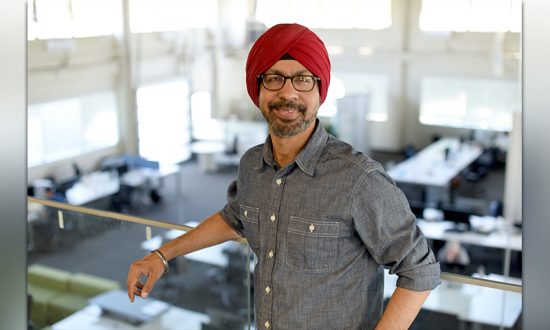Punit Soni is the founder and CEO of Suki, the leader in voice technology for healthcare, providing AI-powered voice solutions for clinicians. He leads a team of physicians, engineers, and technologists creating innovative solutions to lift the administrative burden from doctors, including the company’s flagship product, the Suki AI Assistant. Suki also offers its proprietary voice platform, Suki Speech Service (S3), to partners who want to create a best-in-class voice experience for their solutions. Suki gained recognition in 2019 as Google’s Partner of the Year for AI/ML, Top 40 Healthcare Transformer by MM&M Magazine, Forbes AI 50 list, Best Healthcare Experience at the Voice19 Awards, and CB Insights Digital Health 150.
Technology is pervasive and is disrupting industries in a manner no one could have ever imagined even a few years ago. When we look at the healthcare segment in India, technologies like artificial intelligence (AI), automation and the Internet of Things (IoT) are increasingly used to help address some of the unique challenges faced by the segment. Blockchain is becoming an integral part of the healthcare sector, redefining how Electronic Health Records (EHRs) are populated, maintained, and linked to other services like payments and insurance. As another example, AI is being increasingly incorporated across the healthcare stack, ranging from basic level practices like triaging digital consultation patients to the right clinicians to more complex tasks like assisting with diagnoses.
Healthcare systems today have access to more data than ever, resulting in information-driven innovation that can improve healthcare outcomes and drive business opportunities. The large datasets being collected by these organizations are used to understand information gaps, and cloud-based technologies using AI, Machine Learning, Big Data, and IOT are bringing about acceleration of digital transformation in the healthcare industry, while providing access to advanced analytics and features. From digital assistants that streamline tedious data entry to cloud-based analytics that help predict and diagnose disease, these technologies are transforming the way physicians practice medicine.
AI-related advancements like natural language processing and voice recognition have witnessed a huge uptake in the last couple of years. In fact, data management of health records is one of the most widely used applications of AI today. With the government’s push for digital healthcare infrastructure, NLP is now being used to parse and extract key information from a variety of sources, including clinical documents stored in EHRs to enhance doctor-patient communication. Many healthcare organizations in India are using NLP to help patients better understand their conditions and care plans, via information available on patient portals, pushed out to mobile devices or delivered via intelligent, web-based chatbots.
NLP adoption in terms of chatbots and virtual assistant agents has witnessed immense interest from the healthcare industry, second only to banking over the last two years. According to a recent study by Markets And Markets, the global market size of NLP is growing at a CAGR of 18.6% and is estimated to reach to USD 27.6 Billion by 2026, from USD 9.9 Billion in 2020. These NLP solutions help increase patient engagement, accelerate clinical decision-making and reduce documentation and record maintenance time, allowing physicians to focus on patient care.
One of the biggest issues in healthcare today is physician burnout. Many studies indicate that clerical burden—including clinical documentation—is a major contributor to physician burnout. Voiced-based technologies and platforms leveraging NLP and ML have strong potential to make clinical documentation easier by streamlining EHR data entry. Technology today is allowing for greater communication and collaboration through unified systems and compatibility, helping improve workflow and physician satisfaction with their practice.
Cloud-based NLP services are helping simplify tasks like voice-to-text translation for recording visit notes, auto-linking and recording vital sign readings into the EHR, etc., and taking it to another level by ensuring these services are available anywhere with an internet connection, providing increased mobility and convenience. Best-in-class tools are leveraging machine learning to better understand an individual physician’s vocabulary and preferences over time, strengthening the ability to accurately capture physician voice notations in the moment. With these capabilities, note-taking becomes faster and more streamlined, thereby allowing physicians to focus on what they love: treating patients.
So, while technological advancements in healthcare are bringing about cutting-edge innovation to the fore, this is just the tip of the iceberg. Digital disruptions in the health tech segment will undisputedly alter the structure of the global healthcare system and we will witness some of the finest tech innovations coming out in this space in times to come.


